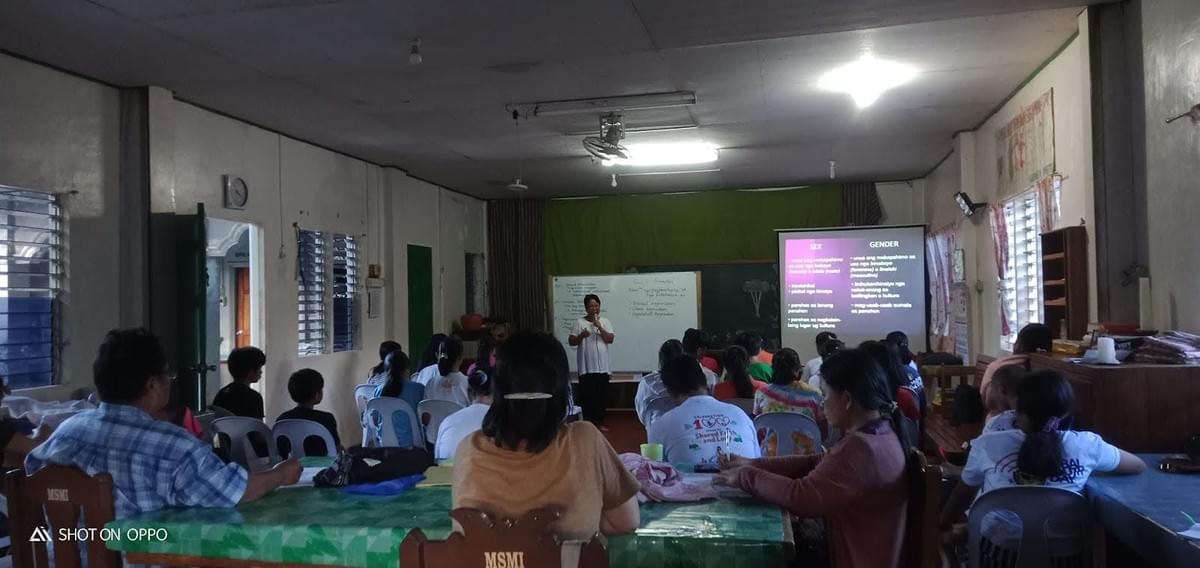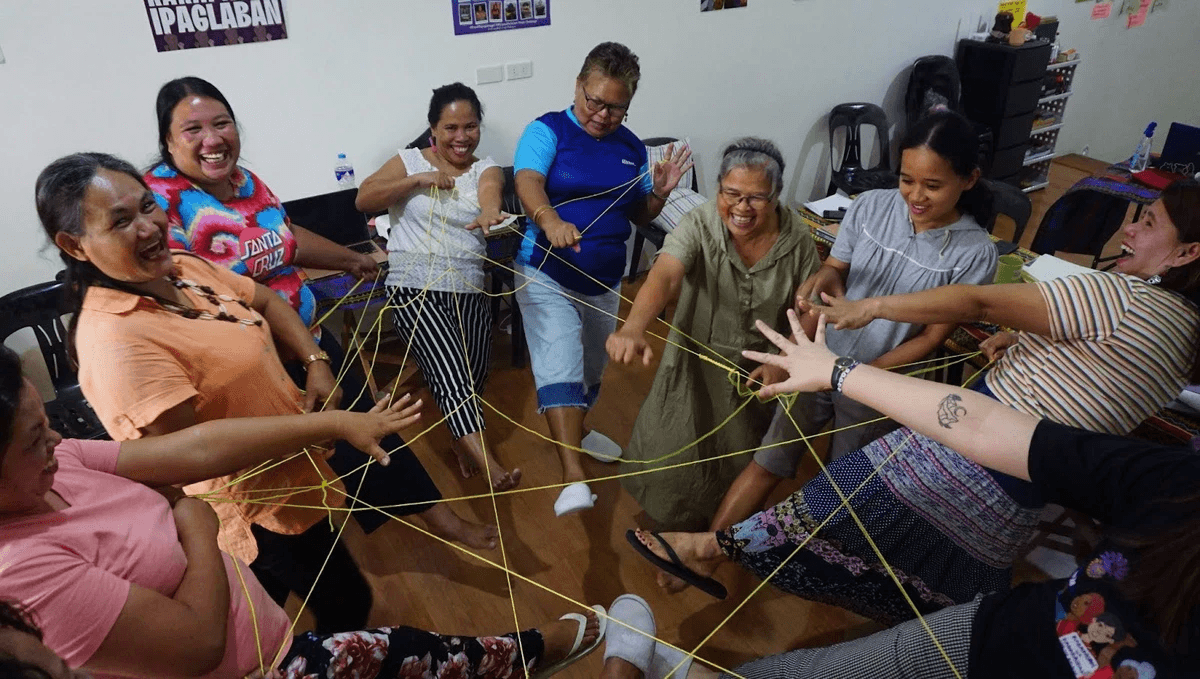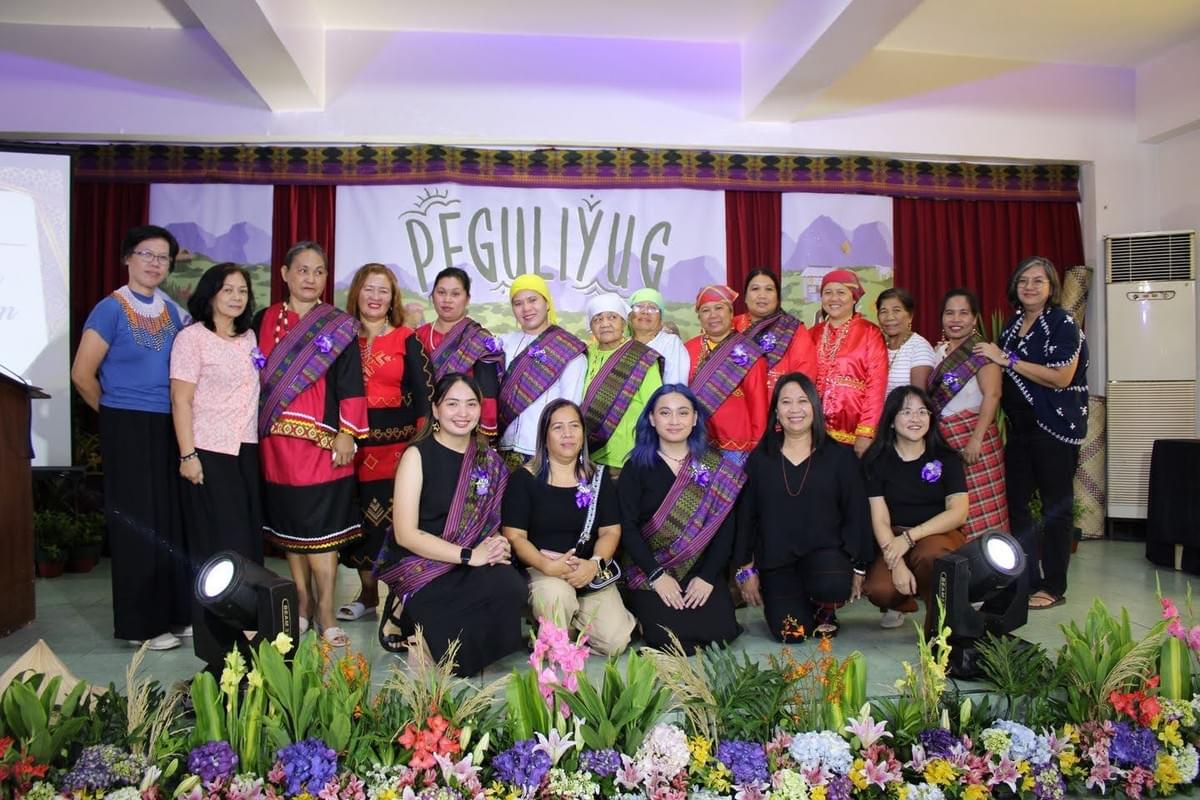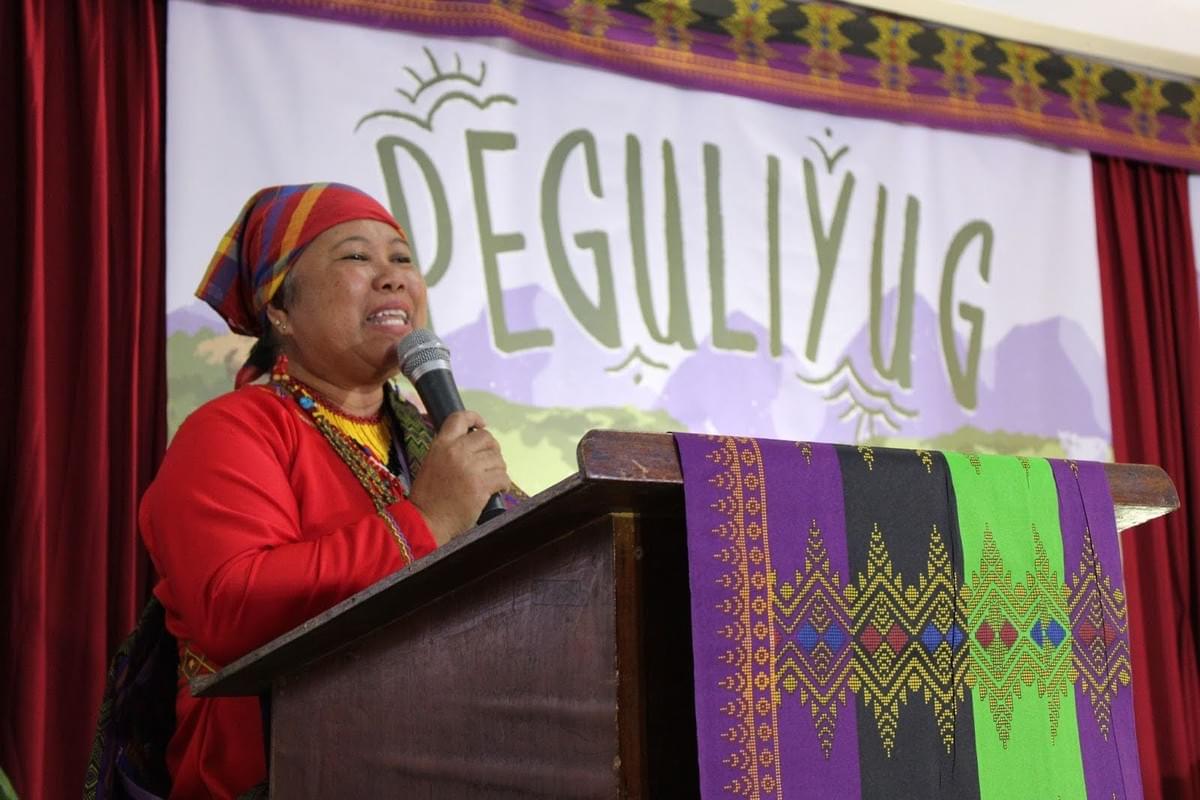Seedbed of Awareness, Dreams, and Solidarity of Indigenous Women
Seedbed of Awareness, Dreams, and Solidarity of Indigenous Women
Written by Sophia Bonifacio
Wilma Tero-Mangilay, a Subanen woman from Midsalip, Zamboanga del Sur, begins her day long before the sun rises.
Known to many as Wing, she wakes early to cook and prepare food for her family. Her mornings are not complete without prayer, reflection, and a hot cup of coffee, her fuel before she sits down to work on her lesson plans for the day.

At noon, Wing carries not just a grocery list for dinner, but also a long list of responsibilities as supervisor of seven Subanen Indigenous Peoples Education (IPED) schools. Her phone is always within reach, ready to receive reports on urgent issues confronting her community, from human rights violations to local disputes, that would need dissemination.
A mother, teacher, IPED co-teacher supervisor, and Indigenous woman leader, Wing is known by many names – Nanay Wing, Teacher Wing, and Ate Wing.
She is deeply aware of the struggles Indigenous peoples face in education in the Philippines as she carries these roles.
Discrimination is a painful reality for many indigenous learners. They are often mocked for their appearance, customs, and language.
One Indigenous woman recalled: “Naulaw man ko ibigkas ang sarili kong wika sa eskwelahan. Pinagtatawanan kami kasi dili kami marunong mag-English [I was too ashamed to speak my own language in school. We were laughed at because we didn’t know English].”
Many Indigenous children are forced to bear the emotional and psychological toll of ridicule instead of focusing on lessons. But this is not the only thing hounding them. From the distance of schools from their communities, to the prohibitive costs of education, and even the competitive scramble for scholarships, discrimination leaves a lasting mark on Indigenous peoples’ educational experience.
The current context of Indigenous Peoples Education
World Bank data in 2022 showed that 90% of 10-year-olds in the Philippines struggle to read and understand simple texts.
This is a crisis of “learning poverty” aggravated by the pandemic. But long before COVID-19, Filipinos, especially Indigenous communities, had already faced steep barriers, including schools too far from home, and education divorced from their culture and realities.
The Department of Education (DepEd) launched the Indigenous Peoples Education Program, or IPED, in 2011 to address this gap. The program promised to nurture learning grounded on Indigenous knowledge, history, language, and practices.
But IPED became entangled in controversy under the administration of then-president Rodrigo Duterte. Indigenous schools were vilified in the government’s counterinsurgency campaign. Teachers were even accused of being rebels, with Duterte himself threatening in 2019 to bomb Indigenous schools. At least 100 schools had been forcibly shut down by the end of his term in 2022..
One was the SILDAP Community Learning Center in Davao del Norte, once a fertile ground for Indigenous children’s imagination and learning. Its door never reopened after its teachers were red-tagged and the school was accused of serving as a tool to fuel rebellion in the country.
Alongside these attacks is the continued intrusion of big corporations into Indigenous ancestral lands through destructive mining, land conversion, mega dam projects, plantations, and other businesses. These projects often enter ancestral territories without going through the proper process of Free, Prior, and Informed Consent as mandated by the Indigenous Peoples Rights Act of 1997.
Indigenous women are among the first to be affected and are the most vulnerable whenever land conflicts arise. They are often deprived of the opportunity to study due to the heavy responsibilities they carry within their family and communities.
They also struggle to attain higher positions or take part in decision-making within their communities, as women’s roles continue to be confined to the household.
Enrollment also remains low despite IPED schools being established over a decade ago. Poverty and distance keep many children from attending, while government budget allocations remain insufficient to hire trained Indigenous teachers and craft culturally appropriate curricula.
Many schools are forced to shut down within a few months or years because of these factors.
The spirit of genuine Indigenous education
DepEd Order No. 62 s. 2011 states that IPED teachers do not need to hold formal education degrees, or even a high school graduate, as long as they are knowledgeable in Indigenous knowledge systems and practices (IKSP).
But as Wing noted, many teachers hired under this government program are unfamiliar with local cultures and languages. This then leaves students confused and disengaged from what is being studied.
The goal of genuine Indigenous Peoples Education is to deepen the understanding of Indigenous youths of their culture and the issues affecting their communities. It seeks to shape young minds, broaden support for Indigenous education, and serve as a tool for the holistic advancement of Indigenous women.
While Indigenous schools have achieved much, the work of nurturing the next generation of Indigenous youth must continue. These come in the form of shaping them into future community leaders, sustaining and strengthening their culture, raising awareness of social issues, and fostering solidarity.
Feminist organizations like LILAK (Purple Action for Indigenous Women’s Rights), a collective working alongside Indigenous women, believe there is a pressing need for spaces where Indigenous women can freely learn, teach, and engage in dialogue, especially on human rights.
LILAK believes it is possible to build an education system that is feminist and Indigenous at its core.
A liberating education for Indigenous women

In 2021, LILAK envisioned a feminist and culturally responsive learning program for Indigenous women that will not act as a replacement for formal education, but as a bridge to fill the gap left by mainstream academic institutions, where space for progressive discourse and meaningful connections among Indigenous women has long been limited.
LILAK thus launched the Indigenous Women Mentoring Program (IWoMen).
The IWoMen Program is a space where Indigenous women share their stories, knowledge, skills, and reflections on their experiences as Indigenous women. They also learn about history under colonial rule and national issues directly connected to their current realities as Indigenous women. The program also provides training to strengthen their roles as leaders, speakers, and human rights defenders.
The program seeks to contribute to building intergenerational leaders among women in Indigenous communities through mentoring.
Wing is among the Indigenous women leaders who became both student and mentor in IWoMen, graduating in August 2024 as part of the program’s second batch of graduates.

As a teacher and defender of Indigenous women’s rights, she faces the challenges of today’s education system and embarks on the peguliyug — the Subanen word for “journey,” and the theme of the IWoMen Batch 2 Graduation — in advancing genuine Indigenous Peoples Education.
Together with her fellow IWoMen graduates, Wing continues to carve out their shared dream of an equal and just society.

